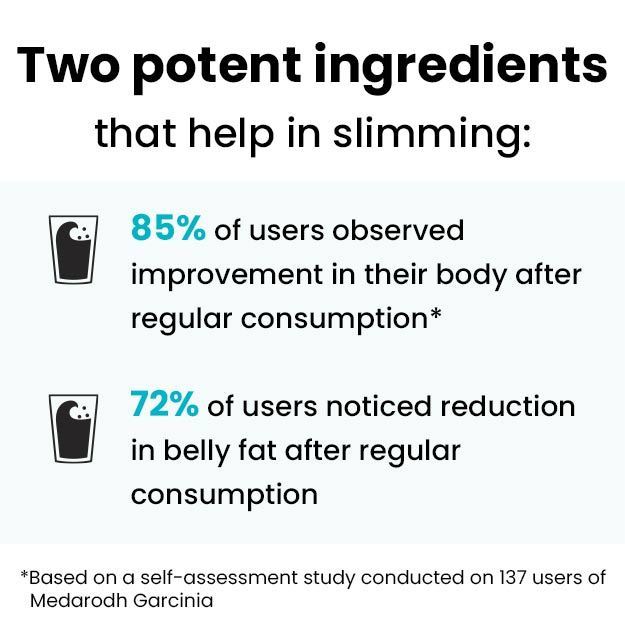Walking is an excellent low impact activity, which has several health benefits. It significantly helps in weight loss and reduces the risk of several chronic disorders. Doctors mostly recommend a 30-minute walk as an initial exercise for the management of a number of physical ailments. Walking is not just a physical activity, it also helps in rejuvenating your mind.
But, what is the right time for a walk?
Time and again it has been proven that a morning walk is more beneficial for your health than walking at any other time during the day.
But, why is it so? And what are the benefits of a morning walk?
This article will answer all these queries.
(Read more: Ways to walk 10,000 steps a day)
-
Benefits of morning walk
- Morning walk for weight loss
- Morning walk for better concentration and mood
- Morning walk improves muscle strength
- Morning walk for an overall good health
- Morning walk reduces the risk of diseases
- Morning walk for respiratory health
- Morning walk for brain function
- Morning walk is the safest form of physical activity
- Why morning walk is better?
Benefits of morning walk
Walking is the most effective and safest form of exercise. It has no risks or side effects and can be performed by anyone at any time. What makes walking stand out from other physical activities is the ease of doing it. It requires no special equipment, training and can be performed anywhere. Here is why you must include a morning walk in your daily routine:
Morning walk for weight loss
Walking is an excellent activity for weight loss. Doctors often recommend a 30-minute walk in the morning to patients with a sedentary lifestyle. This immensely helps in weight loss and further helps in reducing the risk of chronic health disorders. Why walk in the mornings? you may ask.
Several researchers have reported that morning activity is best if you are looking for weight loss. It aids a quicker reduction in weight and BMI. This effect is seen due to an improvement in the satiety index, which is achievable with the help of morning activity. So, you are less likely to overeat during the day because you will feel more full.
This will have noticeable weight loss effects because eating lesser will help you maintain a calorie deficit desirable for weight loss.
A study was conducted on 55 overweight females to compare the effects of morning and afternoon aerobic exercise on their health. Research analysis reported a better satiety and fullness index among morning participants. It was determined that long-term physical activity and exercise drastically changed the appetite patterns of an individual, which are affected by the time of the day they exercise.
(Read more: 15 tried and tested tips for weight loss)
Since walking is a form of aerobic exercise, the findings of this study provide considerable insight into the weight loss benefits of a morning walk.
Another study, which discussed the direct effect of walking on weight loss found that walking just after a meal is the best form of weight loss workout. Brisk walking for 30 minutes after a meal helped the participants in losing around 3 kgs of body weight within a month.
(Read more: 10 common misconceptions about working out)
So, if you are not an early riser and cannot make a specific morning walking routine, just a 30-minute walk after your breakfast can yield the best results. Further, having a hearty breakfast will help you in feeling less hungry over the day, which is another weight loss perk.
So, grab your favourite pair of shoes and go on that much-delayed walk.
(Read more: Diet chart for weight loss)
Are you also troubled by obesity and are not able to lose weight even after a lot of efforts, then start using myUpchar Ayurveda Medarodh Weight Control Tablet today and control your weight.
Morning walk for better concentration and mood
It is believed that a morning walk helps you feel fresh and lets you enjoy a better day. But, does this claim have scientific evidence? Let’s have a look.
Mood disorders are more commonly seen in women, which are subject to change with appetite and exercise parameters. A study conducted on 45 healthy and active women reported the effects of an exercise routine on both of these parameters.
With a controlled intervention design, this study demonstrated that a regular exercise regimen lead to mood elevation and improvement in cognitive function of women. It also assisted in weight loss. Further, it was concluded that having breakfast before exercising had a more positive impact on mood and cognition. It also aided weight loss through superior appetite control.
(Read more: 7 foods to improve your mood)
Researchers ascertained that any form of physical activity for an optimal duration suitable for the individual can offer these benefits when performed between 6 am to 11 am. Since breakfast had a better influence on mood and the general health of the women, it is recommended that you take a light breakfast of about 118 kcal prior to your exercise regimen. This will ensure that the mood elevation lasts post-breakfast.
(Read more: Best breakfast foods)
You can benefit from the findings of this study by following a daily walking regimen anytime between 6 am to 11 am. Don’t forget to eat a healthy breakfast before you begin your walk. This will not just help in keeping you happy throughout the day, but also will be helpful if you are facing weight loss issues. Moreover, it will improve your focus.
(Read more: Harmful effects of skipping breakfast)
Morning walk improves muscle strength
One of the several benefits of walking is that it helps in training your muscles. Although walking is beneficial at any time of the day, researchers suggest that the effect of walking on muscle mass may have a diurnal variation. With this regard, it has been observed that walking is more beneficial when performed in the morning since it catered to an improvement in muscle mass and strength.
Further, it was reported that the exercise capacity of men was greater in the morning than in the evening. They were also less easily exhausted. Additionally, long-term improvements in health were noted by following a morning walk routine as compared to the evening. So, set your alarm half an hour before your usual day and get walking.
(Read more: Best foods for muscle growth)
Morning walk for an overall good health
There is innumerable evidence on the benefits of walking for your health. It is an effective and the easiest form of aerobic activity. Brisk walking is particularly beneficial. It improves physical fitness and stamina, which helps you in performing daily activities with better efficiency.
Further, it helps in strengthening the muscles of the legs, limbs and lower trunk and in enhancing flexibility. So, walking is the best form of initial physical activity. It will gradually prepare you for more intense activities.
(Read more: How much activity do I need every day)
Morning walk reduces the risk of diseases
Obesity and limited physical activity are significant risk factors for a number of chronic disorders like type 2 diabetes, hypertension and cardiovascular diseases. Studies have also linked obesity to the risk of several types of cancer. By aiding in weight loss, morning walk helps to reduce the risk of these disorders, which promotes longevity and helps in improving the overall quality of life.
Several researchers have reported that walking helps in lowering blood pressure and cholesterol levels, while at the same time raising high-density lipoproteins (good cholesterol). This will certainly have a cardioprotective effect. So, eating right and walking briskly for half an hour may be the best thing you could do for your heart.
(Read more: Best cardio exercises for heart health)
Morning walk for respiratory health
Our environment is largely polluted. Blame urbanisation, increased transportation or human activity, pollution has adverse effects on your health, particularly your respiratory health. Coughing and dyspnoea may be the most common problems experienced by individuals in a heavily polluted environment. But, the effects of pollution can be more damaging than this.
It can eventually lead to severe respiratory problems like asthma or bronchitis and even has the potential to cause cellular mutations, which is responsible for the development of cancer. What can you do to protect yourself from these effects?
Researchers say that pollution has diurnal fluctuations corresponding to peak hours in urban areas. This means that the levels of pollution are higher when road traffic and industrial pollutants are at their peak, that is, the evenings.
So, a morning walk is definitely a safer choice. It has also been stated that ozone pollutants are at their peak during the afternoon. This pretty much spares just one safe time to walk; mornings.
(Read more: Deep breathing exercises and their benefits)
Morning walk for brain function
Neurodegenerative disorders like Alzheimer’s disease and dementia are quite common in the modern world. They are characterised by loss of memory and impairment in brain functions, which significantly reduces the quality of life of those affected. While some may argue that exertion may aggravate these disorders, scientific evidence says quite the opposite. Regular exercise, both in the physical and mental form helps in preventing Alzheimer's disease.
Along with a healthy diet and improvement in lifestyle, a simple activity like walking significantly reduced the risk of Alzheimer’s in the study population.
(Read more: Alzheimer's disease diet)
Erikson, through his study on adults aged 70 to 90 years, who were free from dementia, found that walking for a mile each day helped in reducing the risk of Alzheimer's. This can be attributed to improvement in brain function.
He proposed that walking for as little as a mile each day enhanced brain volume, particularly in the frontal lobe. This area of the brain is associated with problem-solving and logical reasoning, which was affected by dementia and Alzheimer’s disease.
Other researchers have found that walking not only improved the functioning of the frontal lobe but several other areas of the brain leading to overall improved brain activity.
(Read more: How to increase brain power)
Why a morning walk is better than any at any other time of the day is because environmental pollution is the least at this hour.
It has been established that neurodegenerative disorders are immensely affected by environmental influences. With the level of pollutants being high in the evening, there is a greater risk of brain damage due to oxidative stress by free radicals. So, it is safest to opt for a walk in the morning, if you have a family history of neurodegenerative disorders.
Further, a morning walk is more beneficial for individuals affected with mental health disorders since it helps in better planning, task management and the employment of a routine, which may be disrupted for these individuals.
Morning walk is the safest form of physical activity
Walking is the simplest and the safest form of exercise, which improves your health in several ways. As compared to running and other intense workouts, it is associated with lesser injuries and can be easily performed by individuals of all age groups. It also helps in toning and strengthening leg and core muscles, which reduces the risk of injuries.
Another way walking helps you is by reducing pain in joints and muscles, and by improving your posture and balance. While these are the benefits of walking at any time, you can further reduce any risks by opting for a morning walk by protecting yourself from harmful pollutants. You may invest in good quality walking shoes or can just wear your normal shoes and get started.
Why morning walk is better?
Walking in the morning is considered to be better than an evening or a night’s walk because it gives a great start to your day. It helps you freshen up and be prepared for the challenges ahead. Quite opposite to the early morning rush, a morning walk allows you to connect with your mind and body and slowly fall into your daily routine.
Also, you are more likely to follow a fixed time for a morning walk. This is often not the case with evening or night walks because you may be fatigued after having a long, tiring day.
Researchers say that you are more likely to perform an activity and stop procrastination if you perform it at a fixed time of the day. Now, when is that possible other than the mornings?
Scientists say that it is best to plan an activity and begin with it in the morning so that it forms a habit. A formed plan, they say, helps in dealing with procrastination.
Additionally, mornings are just a better and more beautiful time to connect with nature. The air is purer. You can go for a relaxing nature walk every day while achieving good health.
(Read more: How to wake up early in the morning)
References
- Centre for Clinical Interventions. Practical Techniques To Stop Procrastination. [Internet]
- Yasuyo Hijikata, Seika Yamada. Walking just after a meal seems to be more effective for weight loss than waiting for one hour to walk after a meal . Int J Gen Med. 2011; 4: 447–450. PMID: 21731896
- Zahra Alizadeh et al. Acute Effect of Morning and Afternoon Aerobic Exercise on Appetite of Overweight Women . Asian J Sports Med. 2015 Jun; 6(2): e24222. PMID: 26448839
- Rachel C. Veasey et al. The Effect of Breakfast Prior to Morning Exercise on Cognitive Performance, Mood and Appetite Later in the Day in Habitually Active Women. Nutrients. 2015 Jul; 7(7): 5712–5732. PMID: 26184302
- Morris JN, Hardman AE. Walking to health. Sports Med. 1997 May;23(5):306-32. PMID: 9181668
- Boussetta N et al. The effect of air pollution on diurnal variation of performance in anaerobic tests, cardiovascular and hematological parameters, and blood gases on soccer players following the Yo-Yo Intermittent Recovery Test Level-1. Chronobiol Int. 2017;34(7):903-920. PMID: 28613960
- Zhao S et al. Annual and diurnal variations of gaseous and particulate pollutants in 31 provincial capital cities based on in situ air quality monitoring data from China National Environmental Monitoring Center. Environ Int. 2016 Jan;86:92-106. PMID: 26562560
- Edward M. Wojtys. Keep on Walking . Sports Health. 2015 Jul; 7(4): 297–298. PMID: 26137172
- Lee IM, Buchner DM. The importance of walking to public health. Med Sci Sports Exerc. 2008 Jul;40(7 Suppl):S512-8. PMID: 18562968























